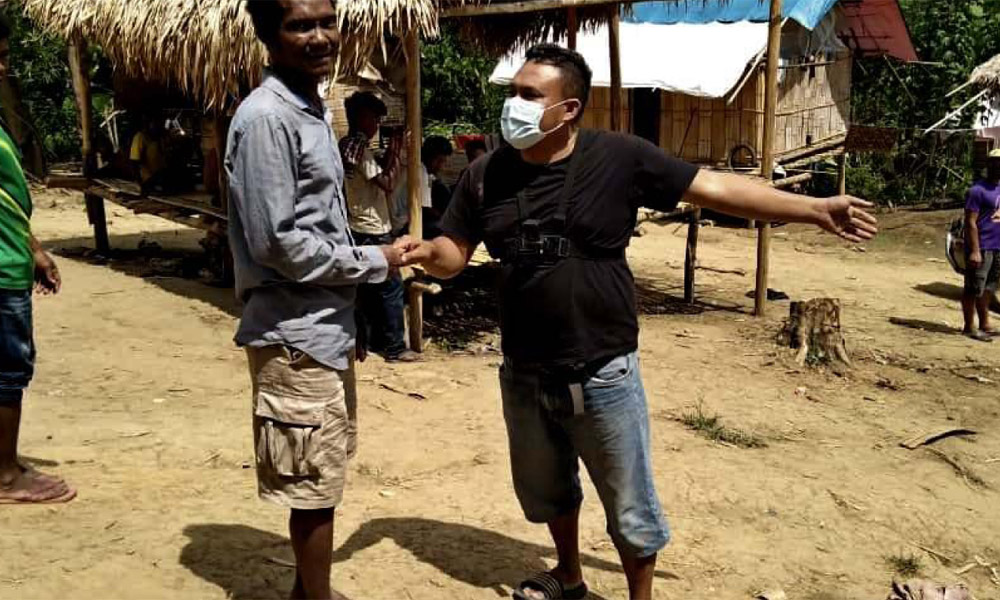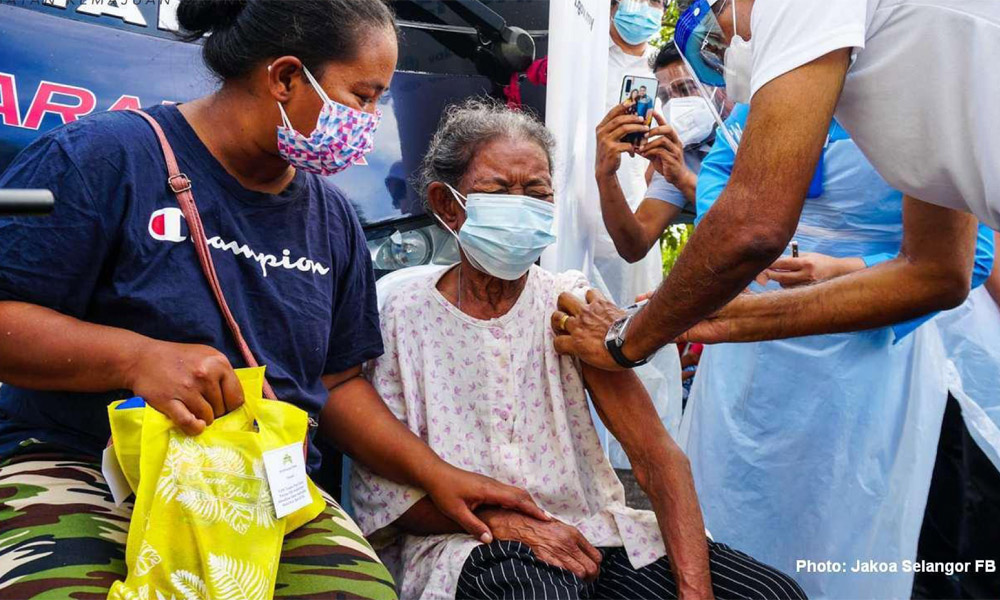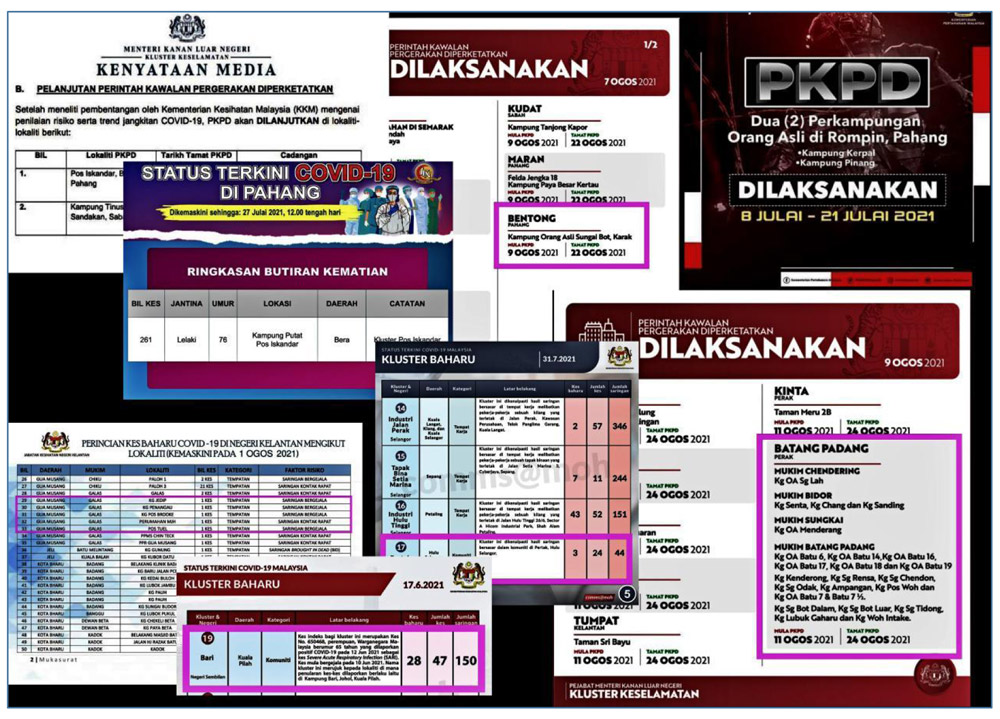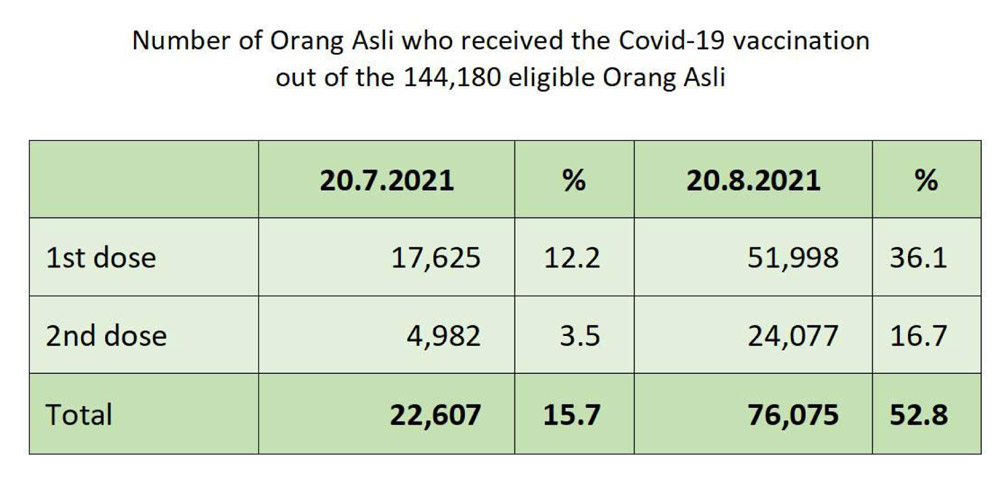As of July 21, 13 Orang Asli villages were put under the enhanced movement control order (MCO) as there were 287 positive Covid-19 cases detected. The total number of Orang Asli deaths due to Covid-19 was 19. These are official figures.
Since then, a small group - Reita of Gerai OA, Bah Tony and Colin of COAC - has been monitoring the Covid-19 situation among the Orang Asli.
Information and data are gleaned from the daily updates by the Health Ministry and various postings in the social media - including the Department of Orang Asli Development (Jakoa) websites, the discussions in various Orang Asli groups, as well as direct communication from those dealing directly with the Covid-19 situation in the Orang Asli community.
The data on Orang Asli is not always flagged as such, and some Orang Asli clusters also include numbers who are not Orang Asli or even non-citizens.
It is difficult to tease out the true numbers but what cannot be denied is that it is now widespread in the rural areas, and increasingly, in the interior villages too.
But we should add that these are the minimum or 'lower-end' estimated numbers.
Sad numbers
The statistics show an increasingly alarming situation. Since late July 2021, there have been increases in cases and deaths.
In the span of just one month, the number of Covid-19-positive cases has climbed more than 10 times, from 287 on July 20 to 3,293.
Another 27 Orang Asli have died since then, bringing the total number of Orang Asli Covid-19 deaths to 49. The situation has become personal as we know some of the deceased very well.
At least 60 Orang Asli villages have been subjected to the enhanced MCO since the pandemic began. Others have been subjected to spending time in quarantine centres. Young children, including a nine-month-old baby, seemed not to be spared as well.
From outside
The majority of the cases come from villages in the rural fringe, where the Orang Asli have access to centres of employment.
Villages adjacent to plantations run higher risks as they once did with Chikungunya - contracting it from plantation workers. Also, vegetable farms in the Cameron Highlands region were responsible for the Pos Brooke and Terisu clusters.
Covid-19-positive Orang Asli returning to their villages for various reasons - including to attend funerals or to escape from quarantining - have been the cause of a few clusters arising from close contact with other villagers.
Invariably, the closely-knit nature of Orang Asli communities - which makes social distancing within the village confines almost impracticable - is a factor that has caused the quick spread of the disease.
Among the more ‘disturbing’ clusters are those in the Batang Padang district (Tapah, Bidor and the road to Cameron Highlands), Pos Iskandar (Tasek Bera) and Rompin in Pahang and several villages in Negeri Sembilan.
New clusters have emerged in Kampung Peta in Johor; Raub in Pahang; and in Sepang and Kuala Langat in Selangor. In all, at least 32 clusters have been formally identified, with some clusters having 7-20 villages in them.

Letting the guard down
Some communities seem to have let their guard down, allowing outsiders, both well-wishers and reckless individuals, to enter their areas, with or without permission.
Some non-Orang Asli individuals, including those who have not been vaccinated, also see no harm in entering Orang Asli areas for their ‘work’.
In at least one case, two outsiders flouted the law and the standard operating procedures to do some recreational fishing in an interior Orang Asli area.
Nevertheless, seeing the worsening Covid-19 situation in the country, Orang Asli communities have now begun to re-barricade their villages from unnecessary outside visitors.
For those who can, they have gone back to their isolate-and-retreat strategy – which was effective during the first two MCOs.
Accepting vaccines
The relatively low vaccination rate, especially prior to July 2021, had contributed to the increased number of cases needing hospitalisation and causing deaths.
For a variety of cultural and organisational reasons, many Orang Asli were reluctant to be vaccinated.
Nevertheless, with a stepped-up information campaign, and with communities seeing first-hand the (speedy) ruin that the virus can bring to their lives, more Orang Asli communities now appear to be open to vaccination.
In the past month, to the credit of the authorities, there has been a 337 percent increase in the number of Orang Asli who now have had at least one dose of the vaccine (either Pfizer or Sinovac).
That is, to date 76,075 Orang Asli have had at least one dose of the vaccine. This is 52.8 percent of the total number (144,180) of Orang Asli eligible to be vaccinated.
The hope is that the infections among the Orang Asli, and everyone in the country, are checked and controlled from spreading.
The fear is that if it reaches the more interior villages, the infectivity rate there would be much higher, and it would be very difficult to treat, contain and support those communities.
As it is, because of the pandemic, care of non-Covid-19 Orang Asli patients is on the backburner. Some of the villagers we know (who have cancer or who suffered a stroke) are finding it hard to get to the hospital. Others had to reschedule follow-ups. - Mkini
COLIN NICHOLAS is the Center for Orang Asli Concerns coordinator.
Article written in collaboration with Reita Rahim and Bah Tony Williams-Hunt
The views expressed here are those of the author/contributor and do not necessarily represent the views of MMKtT.






No comments:
Post a Comment
Note: Only a member of this blog may post a comment.